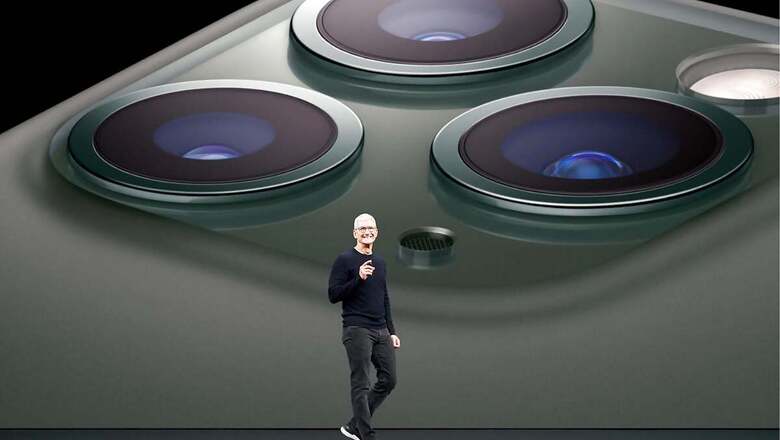
views
As we head to another congressional hearing on antitrust later today, it is expected that representatives from four of the world’s largest tech companies will have some defending to do. Amazon, Facebook, Apple and Alphabet’s Google are expected to answer some tough questions about business practices, how they operate and possible practices that could hurt rivals. This antitrust hearing a few hours from now follows up on the antitrust hearing on July 16, where the big tech companies were asked specific questions regarding their business practices. As we head into today’s antitrust hearing, Apple has released the opening statement of CEO Tim Cook.
Apple CEO Tim Cook is expected to focus on three key things—how the iPhone became as popular as it is in the face of stiff competition from the likes of Samsung, LG, Huawei and Google, Privacy and Security as a key foundation for building products and the App Store policies. “The smartphone market is fiercely competitive, and companies like Samsung, LG, Huawei and Google have built very successful smartphone businesses offering different approaches,” says Cook. “We focus ceaselessly on our users and their experience, and we see the iPhone’s 99% satisfaction rating in consumer surveys as not only a key driver of the product’s growth over time, but also our best measure today that we are still on the right track,” he says. The Apple iPhone line-up regularly lead the American Customer Satisfaction Index (ACSI) surveys.
Cook also highlights Apple’s work with user privacy and data security as the foundation on which its products are built. This has been seen in the recent Apple announcements as well, particularly with the data privacy and security improvements that we saw with iOS 13 as well as the step forward in the iOS 14 beta versions currently doing rounds, the significant improvements for preventing tracking on the Safari web browser and the fact that Apple iOS does not have anything resembling a location history of any user.
With regards to the often-debated App Store commission of 30% on transactions that users do with app developers, Cook says a vast majority of apps listed on the App Store do not have to pay any commission to Apple. “The only apps that are subject to a commission are those where the developer acquires a customer on an Apple device and where the features or services would be experienced and consumed on an Apple device,” he says. He also points out that before the App Store was launched in 2008, app developers had to pay as much as 70% commission to platforms they were using for transacting.
Apple, in the July 16 hearing, was questioned about its App Store practices, which have often been criticized by certain app developers particularly with regards to the 30 percent “cut” that Apple takes from each sale done on the App Store. Apple has put on record that more than 2 million apps are listed on the App Store for iPhones and other Apple devices which need to pay absolutely no share of any transaction to Apple. “It's only a very small percentage that pays a commission,” said Kyle Andeer, vice president of corporate law and chief compliance officer at Apple. He further clarified that as many as 84 percent of all apps available on the App Store are not subjected to the 30 percent tax that Apple imposes on developers marketing or selling their services through the Apple App Store.
At the time, Apple also hinted at the lawsuit that Spotify filed against the company saying the Apple Music service gets preferential treatment. “We make it very easy for competitors to access each and every iOS user through the App Store, so Spotify, Google Play Music and dozens of others offer apps that compete with Apple Music,” said Andeer.
It was expected that Cook would take note of Spotify’s allegations as well. He says that the Apple App Store right now hosts 1.7 million apps. Out of these, only 60 are Apple software. “Clearly, if Apple is a gatekeeper, what we have done is open the gate wider. We want to get every app we can on the Store, not keep them off,” he says.
Recently, an Apple-commissioned study by economists at the Analysis Group found that in 2019 alone, the App Store ecosystem saw more than half a trillion dollars in commerce worldwide.



















Comments
0 comment